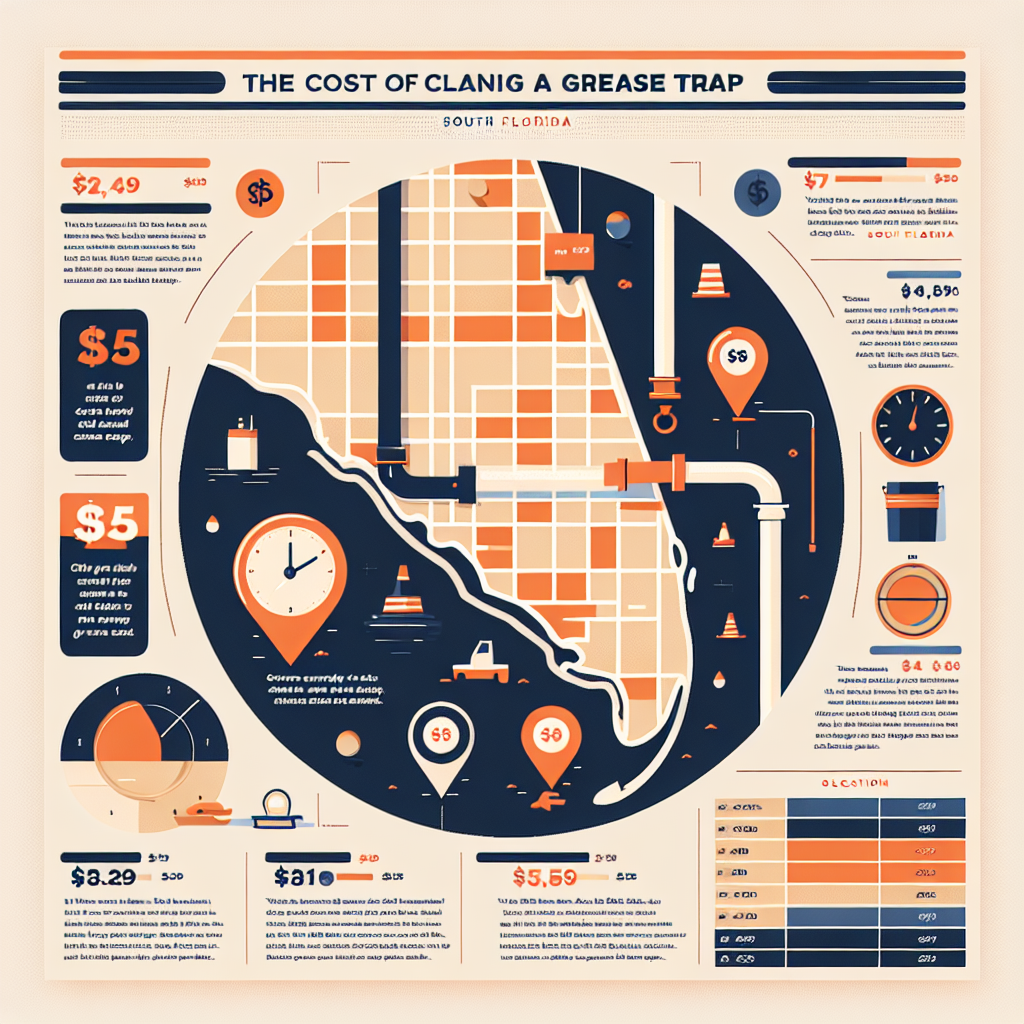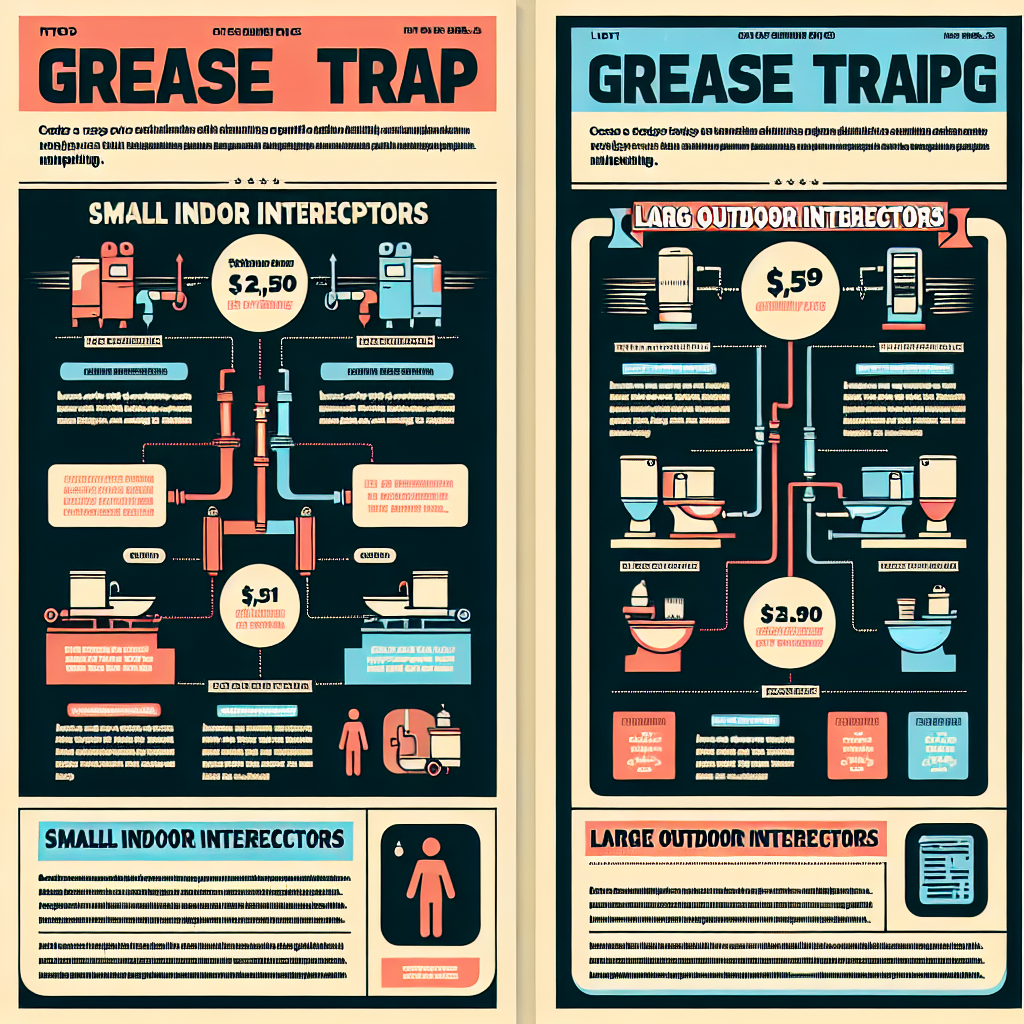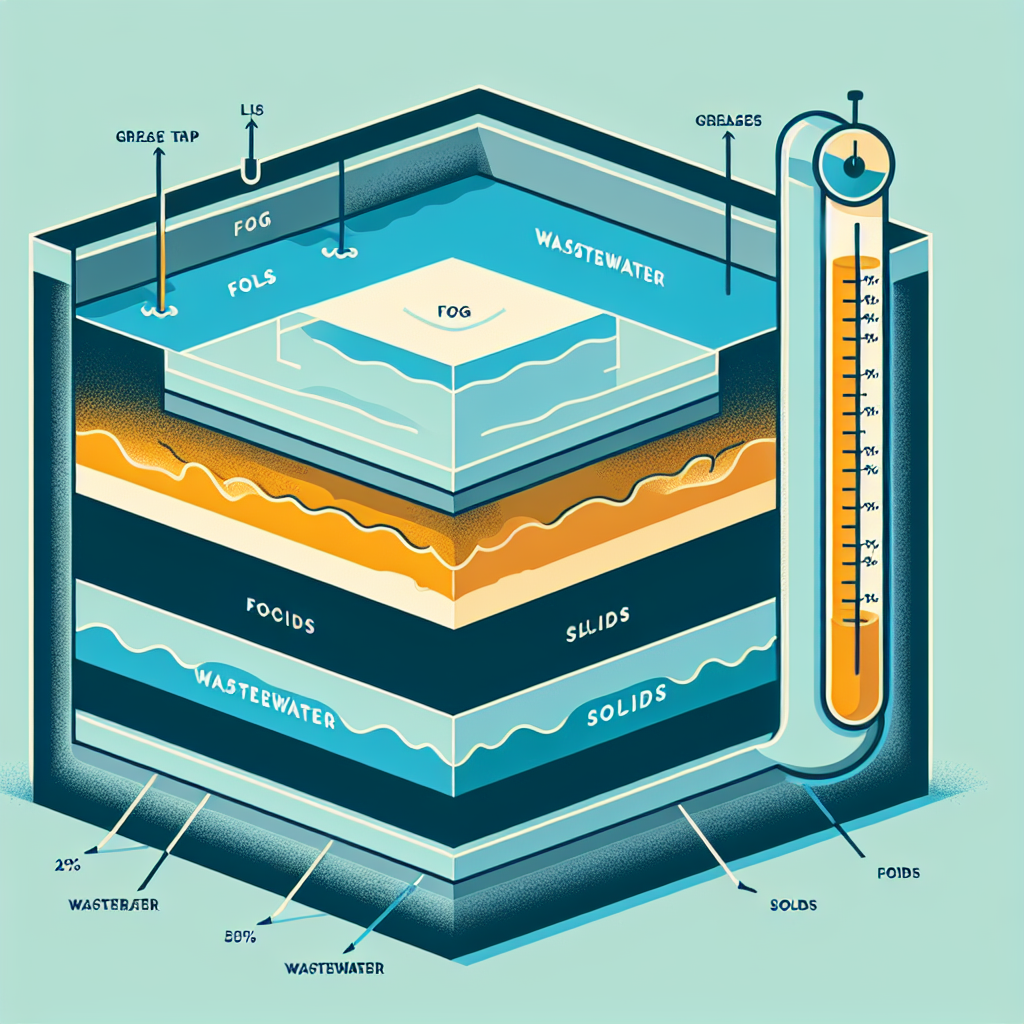Broward County Grease Trap Requirements: What You Need to Know
Complete guide to broward county grease trap requirements: what you need to know for South Florida restaurants.
We Handle Everything For You
We handle all the sourcing, negotiations, and logistics to find you the best grease trap service provider at the cheapest cost in your area.
Broward County Grease Trap Requirements: What You Need to Know
Broward County Grease Trap Requirements: What You Need to Know
Broward County Grease Trap Regulations Overview
Understanding the grease trap regulations in Broward County is crucial for restaurant owners in Fort Lauderdale. Compliance with these regulations helps prevent costly fines and ensures smooth operations. The Environmental Health Division oversees grease trap compliance, enforcing local and state regulations to protect the sewer systems from fats, oils, and grease (FOG) blockages.
Installation and Sizing Requirements
Mandatory Installation Requirements
All food service establishments in Broward County must install grease traps. These devices prevent FOG from entering the sewage system, which can cause significant blockages and environmental issues.
Sizing Calculations
Proper sizing of grease traps is essential to ensure efficiency. The size depends on factors such as the number of seats in the restaurant, the type of food served, and the kitchen equipment used.
Seating Capacity Considerations
The seating capacity of a restaurant directly influences the size of the grease trap required. More seats typically mean more food preparation and consequently, more grease production.
Kitchen Equipment Factors
The type and number of kitchen equipment, such as dishwashers and sinks, also affect the sizing of grease traps. Restaurants with heavy-duty equipment may require larger traps to handle increased FOG output.
Cleaning Frequency Requirements
90-Day Cleaning Cycles
Broward County mandates a minimum cleaning frequency of every 90 days to prevent grease buildup. This schedule helps maintain trap efficiency and compliance with local regulations.
Monthly Cleaning for Small Traps
Smaller grease traps may require more frequent cleaning, sometimes monthly, to prevent overflow and maintain compliance.
Usage-Based Cleaning Schedules
Some establishments may need to adjust cleaning schedules based on usage patterns. High-volume restaurants might require more frequent cleanings.
Professional Service Requirements
Hiring professional services for grease trap cleaning ensures thorough maintenance and compliance with local regulations. These services typically include cleaning, inspection, and documentation.
Record Keeping Obligations
Three-Year Record Retention
Restaurants must retain cleaning and maintenance records for at least three years. These records should include service dates, the amount of waste removed, and the service provider's details.
Required Documentation
Documentation should include cleaning logs, maintenance reports, and any compliance-related paperwork. Proper record keeping is crucial for passing inspections.
Inspection Preparation
Regularly updating and organizing records can simplify inspection preparation, ensuring that all necessary documentation is readily available.
Digital vs. Paper Records
While paper records are traditional, digital records offer easier management and retrieval. Consider using digital solutions for efficient record-keeping.
Staff Training Requirements
FOG Disposal Training
Staff should be trained in proper FOG disposal methods to prevent improper waste entering the sewer system. This training is essential for maintaining compliance and preventing blockages.
Maintenance Procedures
Training staff in basic maintenance procedures can help identify potential issues early, reducing the risk of non-compliance.
Compliance Awareness
Regular training sessions can keep staff informed about the latest compliance requirements and best practices.
Documentation Responsibilities
Staff should understand the importance of accurate documentation and their role in maintaining compliance records.
Inspection and Enforcement
Health Department Inspections
The Broward County Health Department conducts regular inspections to ensure compliance with grease trap regulations. These inspections focus on maintenance records, cleaning frequency, and trap conditions.
Water Management District Oversight
The South Florida Water Management District also plays a role in overseeing compliance, focusing on the environmental impact of FOG discharge.
Common Violations
Common violations include inadequate cleaning frequency, improper record-keeping, and insufficient trap sizing. Addressing these issues proactively can prevent penalties.
Penalty Procedures
Non-compliance can result in fines, increased inspection frequency, and even business closures. Understanding these penalties can motivate adherence to regulations.
Recent Regulatory Changes
Updated Requirements
Recent updates to Broward County regulations emphasize stricter cleaning schedules and enhanced documentation requirements.
New Compliance Standards
New standards focus on zero-grease waste goals, encouraging restaurants to adopt more sustainable practices.
Zero-Grease Waste Goals
Achieving zero-grease waste involves regular maintenance, staff training, and efficient grease trap systems.
Implementation Timelines
Restaurants should stay informed about implementation timelines for new regulations to ensure timely compliance.
Compliance Strategies
Regular Maintenance Programs
Implementing regular maintenance programs can help ensure compliance and prevent costly repairs or fines.
Professional Service Partnerships
Partnering with professional grease trap service providers can offer peace of mind and ensure adherence to local regulations.
Staff Education Programs
Ongoing staff education programs can keep employees informed about best practices and regulatory changes.
Documentation Systems
Efficient documentation systems can streamline record-keeping and simplify compliance verification during inspections.
Common Violations and Penalties
Non-Compliance Consequences
Failure to comply with grease trap regulations can lead to severe consequences, including hefty fines and business disruptions.
Fine Structures
Fines for non-compliance can vary based on the severity of the violation, with repeated offenses resulting in higher penalties.
Business Disruption Risks
Non-compliance can lead to business disruptions, including mandatory closures until compliance is restored.
Restoration Procedures
Restoring compliance involves addressing violations, updating records, and potentially undergoing additional inspections.
FAQs
What are Broward County grease trap requirements?
Broward County requires all food service establishments to install and maintain grease traps to prevent FOG from entering the sewer system. Compliance involves regular cleaning, proper sizing, and accurate record-keeping.
How often should Fort Lauderdale grease traps be cleaned?
In Fort Lauderdale, grease traps should be cleaned at least every 90 days. However, high-volume establishments may require more frequent cleaning.
What are the penalties for non-compliance with grease trap regulations in Broward County?
Penalties include fines, increased inspection frequency, and potential business closures. Fines can vary depending on the violation's severity.
What documentation is required for grease trap compliance in Broward County?
Required documentation includes cleaning logs, maintenance reports, and compliance-related paperwork, which must be retained for at least three years.
How can restaurants in Fort Lauderdale ensure compliance with grease trap regulations?
Restaurants can ensure compliance by implementing regular maintenance programs, training staff, partnering with professional service providers, and maintaining accurate documentation.
What recent changes have been made to Broward County's grease trap regulations?
Recent changes include stricter cleaning schedules, enhanced documentation requirements, and a focus on achieving zero-grease waste goals.
Conclusion
Compliance with Broward County's grease trap requirements is essential for restaurant owners in Fort Lauderdale. By understanding and adhering to these regulations, restaurants can avoid costly fines and ensure smooth operations. For more detailed information on local regulations, visit the [Broward County Environmental Health Division](https://www.broward.org/Environment/Pages/Default.aspx).
Internal Links
Related Grease Trap Resources



Need Professional Help?
Get expert grease trap services with transparent pricing and same-day availability.
Get Free Quote